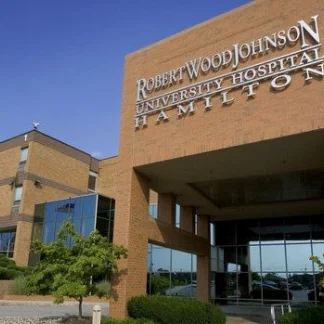Oaks Integrated Care
Oaks Integrated Care is a non-profit organization dedicated to provide behaviora...
RWJ University Hospital Hamilton provides behavioral health care and mental health treatment to men and women seeking support in the Hamilton Township, New Jersey area. They also offer care for children, adolescents, and seniors. If addiction is the primary diagnosis, clients may need to be referred to drug rehab treatment.
RWJ University Hospital Hamilton offers a wide variety of services. Their programs are offered on an outpatient basis.
Outpatient Treatment The outpatient program helps individuals with mental health challenges, psychiatric emergency screening services, eating disorder treatment, and trauma treatment. They also offer dual diagnosis care and referrals as needed.
Insurance RWJ University Hospital Hamilton accepts most insurance plans including Aetna, Blue Cross/Blue Shield, Beacon, Anthem, ComPsych, and Bright Health. It’s important to check with your insurance provider to verify your benefits, as many out of network insurance policies vary in coverage.
Contact us for more information: (609) 586-7900

Connect with RWJ University Hospital Hamilton by calling their admissions team directly.
(609) 586-7900 Website Get DirectionsResearch clearly demonstrates that recovery is far more successful and sustainable when loved ones like family members participate in rehab and substance abuse treatment. Genetic factors may be at play when it comes to drug and alcohol addiction, as well as mental health issues. Family dynamics often play a critical role in addiction triggers, and if properly educated, family members can be a strong source of support when it comes to rehabilitation.
Group therapy is any therapeutic work that happens in a group (not one-on-one). There are a number of different group therapy modalities, including support groups, experiential therapy, psycho-education, and more. Group therapy involves treatment as well as processing interaction between group members.
In individual therapy, a patient meets one-on-one with a trained psychologist or counselor. Therapy is a pivotal part of effective substance abuse treatment, as it often covers root causes of addiction, including challenges faced by the patient in their social, family, and work/school life.
Group therapy is any therapeutic work that happens in a group (not one-on-one). There are a number of different group therapy modalities, including support groups, experiential therapy, psycho-education, and more. Group therapy involves treatment as well as processing interaction between group members.
In individual therapy, a patient meets one-on-one with a trained psychologist or counselor. Therapy is a pivotal part of effective substance abuse treatment, as it often covers root causes of addiction, including challenges faced by the patient in their social, family, and work/school life.
In individual therapy, a patient meets one-on-one with a trained psychologist or counselor. Therapy is a pivotal part of effective substance abuse treatment, as it often covers root causes of addiction, including challenges faced by the patient in their social, family, and work/school life.
Oaks Integrated Care is a non-profit organization dedicated to provide behaviora...
South Broad Street Counseling Services is a private rehab located in Trenton, Ne...
Princeton HealthCare System - Clocktower Dr is a leading provider of healthcare ...
Diocese of Trenton – PACT Program is a private rehab located in Trenton, New Jer...